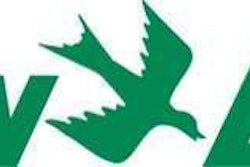
The government allows contractors to write off the purchase of new equipment (Section 179 deduction) – up to $200,000 – in the first year to help spike the economy.
Some contractors believe they’re going to avoid paying the tax but they’re actually just deferring paying those taxes to a different year. The write-off allows them to have the use of their money a little longer and maybe defer it to a different year when they don’t make as much money.
Always be sure to file your W-2s timely and correctly.
“Lots of small business owners don’t keep up with the different filing dates for W-2s and 1099MISC,” says Keith Barfield, CPA with Barfield, Murphy, Shank and Smith in Birmingham, Alabama. “Employees and independent contract labor should have these in their hands by January 31. The top risk from the IRS perspective would be misclassification of workers as independent contractors, when in actuality, they are employees. If you are unclear, consider obtaining the tests the IRS uses to determine who is an employee and who is not.” (See IRS pub 1779.)
According to Fiscal Fitness magazine, the fourth quarter of the year is an excellent time of the year to revisit financial plans. The publication also states that year-end is a great time to make sure retirement contributions have been maxed out or required minimum distributions have been taken, and it is a good time to consider tax strategies and make sure portfolios are rebalanced.
Portfolio balancing
Portfolio balancing helps keep allocations in line with risk tolerance, however, it can also cause taxable capital gains.
There are many opinions on how often a portfolio should be rebalanced, but those at Fiscal Fitness magazine suggest annual rebalancing provides greater potential long-term performance, more tax efficiencies and less trading fees.
Use tax
Typically, the use tax pertains to equipment purchased from the internet where no sales tax was paid, according to Barfield. This equipment can be anything from a backhoe to a new printer.
“This is a new area of concern for most small businesses,” Barfield says. “Due to the pressure on the state and local governments, sales and use tax collectors are appearing everywhere. Lots of municipalities outsource their tax collections to third party agencies who seem to work on a commission basis.”
These items should be included on sales and use tax returns.
“Those equipment items are subject to use tax, and if you are audited, they will be caught,” he says. “Auditors go through fixed asset purchases and pick them out for targeting.”
Deductions
To reduce taxes, losses can be deducted against the owner’s personal income. If these losses exceed personal income for the year, some of the year’s business losses can be used for the purpose of reducing taxable income in future years.
Trips are another gray area many companies question when it comes to taxes. If more than half of a business trip is devoted to business, the travel costs and other business expenses can be deducted.
Exemptions
A business owner must register with the state’s tax department if he/she sells a product or service subject to sales tax. Along with being included on the company’s sales tax return, nontaxable and taxable sales must be tracked.
The IRS determines if a company is liable for paying state sales tax by considering whether it has a “presence” in that state. If your business has a warehouse, office or employees working for you in a state other than the one your headquarters is in, the IRS may consider that you have a presence in that state.
“There’s lots of confusion all around on this,” says TLC Landscaper of the Year Finalist William Dickerson, owner of Dickerson Landscaping in Tallahassee, Florida. “For example, if I draw a landscape plan for you, the state says that is a product [therefore, taxable]. On the other hand, I did a service of creating a concept. You can’t [physically] touch the idea, so therefore it is not taxable. We use the time approach. Time is a service and it is not taxable. So, we bill for time, not a plan.”
Others determine that labor is a non-taxable service, meaning that means any physical estimating, designing, managing, installing or maintaining time spent on a project is yours to keep.
Other items that carry no taxation charges are delivery/freight charges.
At Dickerson Landscaping, they reduced mark up on plant materials, which reduced sales tax and the amount they had to send the IRS. This allowed them to increase their labor rates to compensate and earn more profit.
Mutual funds, municipal bonds and selling investments
Experts at Fiscal Fitness say that mutual funds are required to distribute at least 90 percent of net investment income and 98 percent of net capital gains every year, which the magazine says can be a tax liability for investors.
Municipal bonds are good tax-efficient investments, and they typically provide income that’s exempt from federal taxes. Fiscal Fitness says that municipal bonds also provide a lower yield compared to most taxable fixed income products, therefore they say it’s important to look at the taxable-equivalent yield when comparing yields.
Before selling an investment for tax considerations, it’s important to balance the tax benefit of potentially selling low to the market opportunity. When trying to reduce tax liabilities by implementing tax strategies, it’s also important to keep investment objectives in mind and prepare a plan that will suit the needs of your business.











